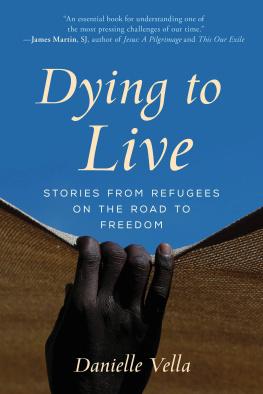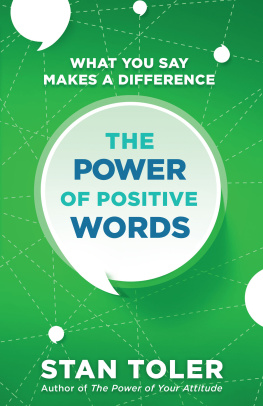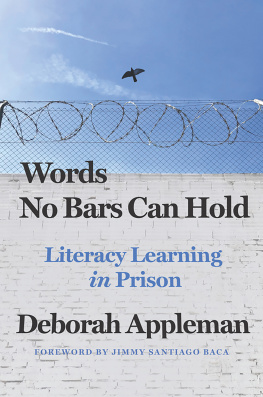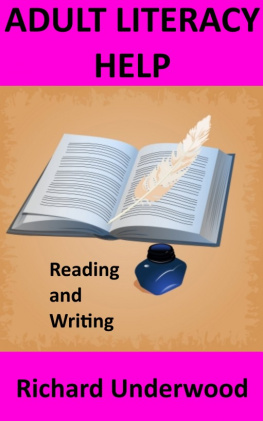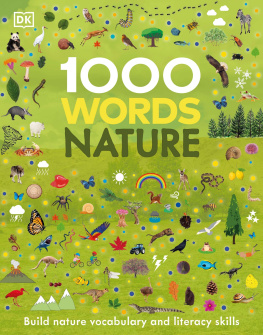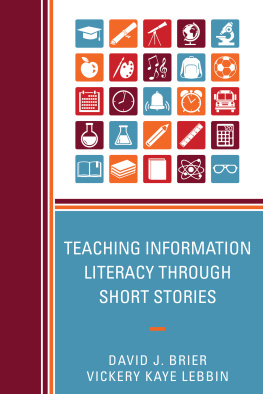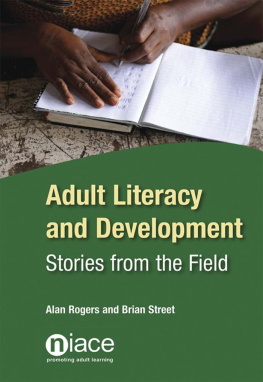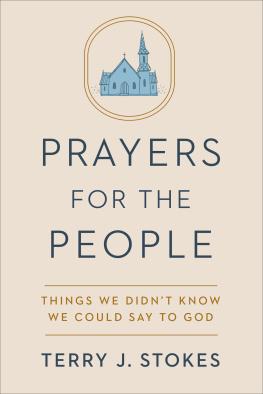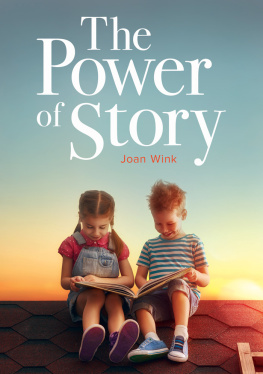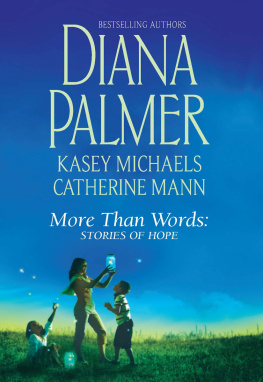Thank you to all the people who have shared their stories and to NIACE Dysgu Cymru; Llamau, Cardiff; the Ministry of Defence and the Basic Skills Unit at the Welsh Assembly Government for their help in compiling this book.
There is no doubt that learning to read and write has transformed my life and the lives of my children. It has also changed the fortunes of the people in this book.
There are many reasons why people leave school without basic reading skills, as these stories prove.
For some, like young father Edward John, it was a troubled childhood and being taken into care. Teenager Ruth Bond suffered mental illness as a schoolgirl and lost out on part of her education. For African refugee Lutala Kabe learning to read in English as a second language was a matter of life or death. Swansea City footballer Angel Rangel needed to learn to succeed on the pitch.
The stories of former steel-worker Joe Monks, Afghanistan war hero Jonathan Owen, teaching assistant Jill Jury and world-famous architect Lord Richard Rogers prove that you can be written off at school yet still make a success of your life. Their problems, like my own, stemmed from dyslexia.
Six years ago my literary skills were so bad that I couldnt even write a cheque or reply to an email. Reading a book would take months. I also had a very poor attention span and I struggled to concentrate on anything for more than a few minutes. This made life incredibly frustrating.
Although I wasnt diagnosed with dyslexia and dyspraxia until I was 21, learning difficulties had dominated my life. School was a nightmare and my poor concentration meant that it wasnt long before I began to fall behind. My teachers did everything they could to help me, but it seemed as if I had an inability to retain information. Even the basic things like copying from the blackboard were a struggle and in the end I spent most lessons staring out of the window, daydreaming.
After school, my career focused on rugby. Over the following years I played for Wales 52 times, captaining the side on seven occasions. I also played for the British Lions and the Barbarians.
Although Im incredibly proud of what I achieved in my rugby career, the shadow of learning difficulties always hung over me. I remember once a middle-aged woman threw a carefully signed autograph back in my face because Id spelt her name wrong this sort of thing happened all the time.
On another occasion I remember driving my daughter Lucy to school. When we arrived at the gates she realised she had left her gym kit at home and knew she would get into trouble with the teacher. She asked me if I would write her a note. Im ashamed to say I couldnt. I covered up. Go on, youll be all right, I told her. I left her at the school gates and I cried to myself on the way home. I was so ashamed. I had sent a six-year-old to have a row from her teacher just because I couldnt write.
The moment that my early learning difficulties really came back to haunt me was the moment when my wife and I had to face the fact that both our children were showing signs of learning difficulties.
My son Steele had terrible problems with his co-ordination and struggled to ride a bike even though all of his friends could. We later found out he had dyspraxia. Meanwhile my daughter Lucy had huge difficulty with reading and found school very frustrating, just as I had years earlier.
My life changed for the better when ex-Scotland international Kenny Logan introduced me to the Dore Programme, a new treatment for dyslexia. In January 2006 I was diagnosed as severely dyslexic and it turned out my problems were a lot worse than Lucys or Steeles. As a family we followed the programme. For me it was incredible to realise I was finally winning the battle. My reading ability went through the roof and my concentration, which had always held me back, improved dramatically. Suddenly I was able to focus, which made communicating and expressing myself so much easier. It was as if someone had switched on a light bulb. I saw an improvement in my children, too. Their teachers were amazed by their progress. Steeles co-ordination improved so much that he was even able to ride a bike which Id never thought possible.
Today I am not only able to read and write but am able to do things I never thought would be possible. It feels like my world has opened up. Everything seems so much easier.
In 2007 I published The Hardest Test as part of the Quick Reads initiative. It told the story of my journey as I overcame my learning disabilities.
As a Quick Reads author I have been asked to speak at many events and have met many learners and their families. Their situations are often very different from mine, but many have the same problem: being ashamed to admit their problems.
The people in this book have taken those first steps to overcome their difficulties and should be proud of what they have achieved.
Their stories are an inspiration for others.
Scott Quinnell
by Angel Rangel
When I came to Wales to play football for Swansea City I didnt speak a word of English. Off the pitch the only word I knew how to say was hello. But soon I learned my first words on the pitch f*** off.
I was twenty-four and playing for the Spanish side Terrassa FC in Barcelona when I got a telephone call from Roberto Martinez, who was Swansea Citys manager at the time.
Come and play for me at Swansea, he said in Spanish. I have been keeping an eye on you and I think a move to Wales could improve your career.
I knew of Martinezs reputation as a great manager. He had been a player in Spain who had made the move into football management and was now making a name for himself in the UK. To some of the Swansea fans he was God. Martinez had visited Terrassa earlier in the season to watch another player. It just happened that on that day I played the best game of my career and he liked what he saw.
I think you could be a great signing for Swansea, Martinez continued, as if needing to convince me that a move to Wales would be a step up in my career. I needed no persuasion. At Terrassa I was playing semi-professional football; here was a chance to become a professional and play in the English League One. I booked my plane ticket to Wales.
There was only one problem: my English or lack of it. I had grown up in Sant Carles de la Rapita in Tarragona, a small village south of Salou on the Costa Dorada in Spain, 2,000 miles away from Wales. There both my parents and my two sisters spoke Spanish. I had learnt English in the third year at school but that was more than ten years ago, so my knowledge was very poor. I spoke a bit of Italian and Portuguese but couldnt speak a word of English and found it very difficult to communicate.


